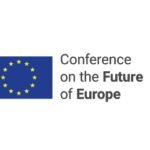The European Conference on the Future of Europe was supposed to be a forum where all member countries and all political options could have their say and help shape this future of the EU through debates and meetings. The conference received little attention from the leading media, it remains unknown to most Europeans and was already unrepresentative as such. The ECR (European Conservatives and Reformists Group) recently walked out of the forum, claiming that it was presented as a democratic process, but in fact proved to be a major manipulation through the choice of experts and interpretation of the so-called recommendations of European citizens. The conference only served the purpose of making it seem as if there was no alternative to the slogan: more power to Brussels! The zealous supporter of the conference and the emergence of a denationalised EU juggernaut – Guy Verhofstadt – calls on Twitter for unanimity through a ban on vetoes, creation of transnational lists to the EU Parliament and raising a European army along the lines of Macron’s idea.
Guy Verhofstadt also gave a speech during another conference in March dedicated to the Ventotene Manifesto. The Manifesto, which forms the ideological basis of the EU, was written in 1941 by the Italian communist Altiero Spinelli. Socialists and liberals at the conference demanded the realization of his ideas: the immediate construction of a centralized superstate by abolishing nation states. Smiles lit up the faces of Lenin and Stalin in their graves. For the ECR, however, such leftist ideas about a creeping abolition of national governments and democracy are disgusting, as they are for all freedom-loving people. No wonder they abandoned the conference on the future of Europe.

Altiero Spinelli
The Spinelli Group accuses Poland, Hungary and other countries of interfering with the rule of law. The question arises as to what it is meant by the rule of law. The term appears in Article 2 of the Maastricht Treaty but is nowhere defined in a legally binding way in EU documents. Nevertheless, the Spinelli Group tries to use the rule of law argument against all defiant member states that do not want to follow its manifesto. With some exceptions, such as Germany. Here the eyes are turned, even though in Germany judges are elected by politicians, even though the election of a candidate who was inconvenient for the left-wing, ruling scene as prime minister of Thuringia was reversed by Merkel just like that, quite authoritatively. In Poland, unlike in Germany, elections are not reversed because someone does not please the “elites”. In Poland, unlike Germany, there is no chaos in the elections. Remember the chaos at the last elections in Berlin in 2021: 1600 invalid voting cards were issued, 5000 were not issued at all, 73 polling stations were temporarily closed.
The left wings in the EU do not want to affirm reality, they want to falsify it. They use words like the rule of law, justice, human rights only to impose their totalitarian ideas. Henk Jan van Schothorst, director of the Christian Council International, defined the EU’s efforts to introduce a “global rule of law” in a postmodern EU with newly defined, “new” human rights thus: “Instead of guaranteeing classical civil rights for all, the state would, in the imagination of globalist human rights activists, become an arbiter, implicitly enforcing the rights of certain groups against others: women against the unborn, children against parents, proponents of gender ideology against adherents of the traditional Christian view of humanity, and Muslim immigrants against those who advocate Western values.”




